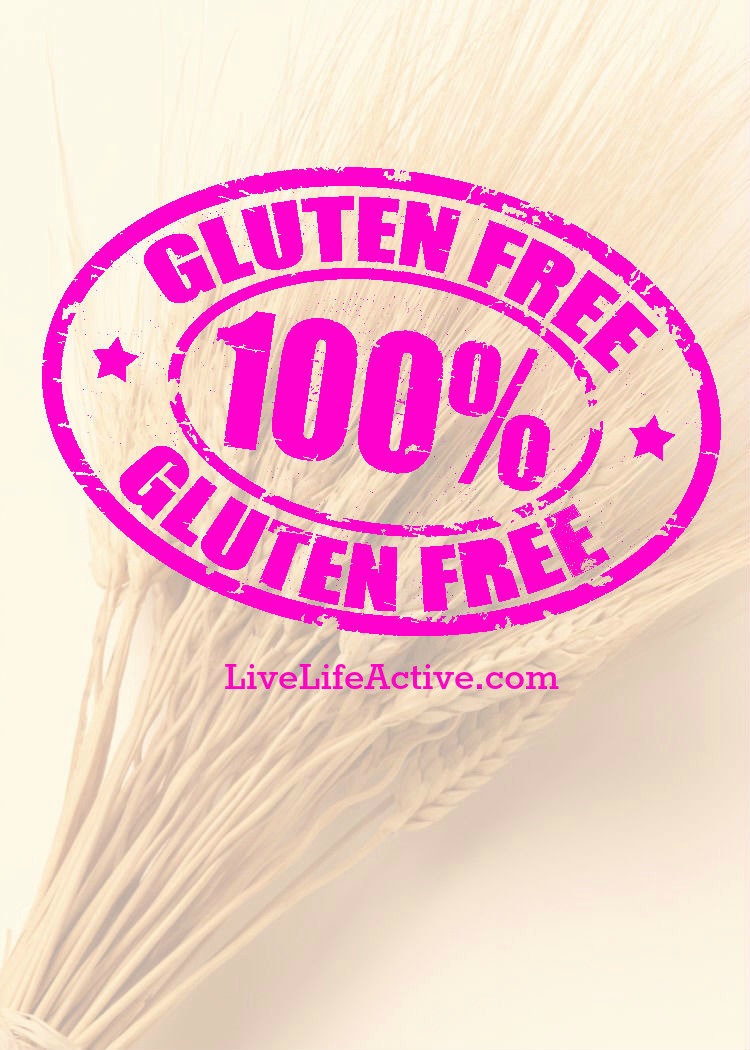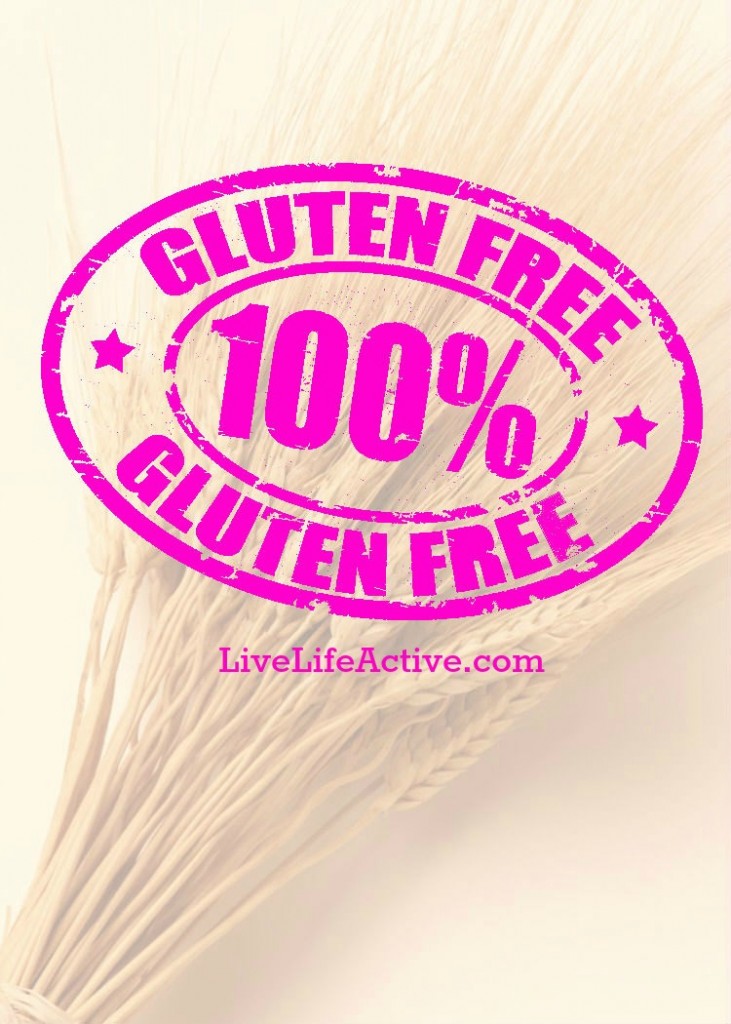I’ve been hearing a lot lately about people removing gluten from their diet. Until a few months ago, I didn’t know what they meant by “excluding gluten”. I thought I would explain what it is, what the symptoms are and a list of approved gluten free foods as well as foods to avoid when following this diet. I hope this can help anyone who has messaged me asking “what is a gluten free diet?”, “what foods can I eat on a gluten free diet”, & “what’s a good gluten free diet plan.” I hope this article can help!
What is a gluten free diet?
What is gluten?
Gluten is a protein complex found in wheat (including kamut and spelt), barley, rye and triticale. A gluten-free diet is the only medically accepted treatment for celiac disease. Being gluten intolerant can often mean a person may also be wheat intolerant as well as suffer from the related inflammatory skin condition dermatitis herpetiformis, There are a smaller minority of people who suffer from wheat intolerance alone and are tolerant to gluten. (Wikipedia)
What’s food can I eat on a gluten free diet?
- Beans, seeds, nuts in their natural, unprocessed form
- Fresh eggs
- Fresh meats, fish and poultry (not breaded, batter-coated or marinated)
- Fruits and vegetables
- Most dairy products
Approved Grains and starches
- Amaranth
- Arrowroot
- Buckwheat
- Corn and cornmeal
- Flax
- Gluten-free flours (rice, soy, corn, potato, bean)
- Hominy (corn)
- Millet
- Quinoa
- Rice
- Sorghum
- Soy
- Tapioca
- Teff
RED FLAG FOODS – Avoid these items below if you’re on a gluten free diet
- Barley (malt, malt flavoring and malt vinegar are usually made from barley)
- Rye
- Triticale (a cross between wheat and rye)
- Wheat
- Bulgur
- Durum flour
- Farina
- Graham flour
- Kamut
- Semolina
- Spelt
These items below should be avoided but keep your eye out for versions of them that are labeled gluten free. A lot of items are now created with a gluten free option which are okay to eat!
Check for a gluten free version of the items below..otherwise AVOID these:
- Beer
- Breads
- Cakes and pies
- Candies
- Cereals
- Cookies and crackers
- Croutons
- French fries
- Gravies
- Imitation meat or seafood
- Matzo
- Pastas
- Processed luncheon meats
- Salad dressings
- Sauces, including soy sauce
- Seasoned rice mixes
- Seasoned snack foods, such as potato and tortilla chips
- Self-basting poultry
- Soups and soup bases
- Vegetables in sauce
This diet has become so common that many restaurants are now offering gluten free options, which is great! Check this excellent resource to find Gluten Free Restaurants in your area!
I have seen several friends who have had stomach problems for years and the doctors could never determine the issue. Recently, their doctors have suggested them trying to eliminate gluten from their diets. At first they have were overwhelmed by the amount of foods they could no longer eat, but after some time, they have adjusted to the new lifestyle and found ways to make it work in their own life.
“Experts now think of gluten intolerance as a spectrum of conditions, with celiac disease on one end and, on the other, what’s been called a “no man’s land” of gluten-related gastrointestinal problems that may or may not overlap.
Leffler estimates, for instance, that half of the approximately 60 million people in the U.S. who suffer from irritable bowel syndrome (IBS) are probably sensitive to gluten. (Gluten allergies, which are similar to other food allergies, also fall on the spectrum but affect only about 0.1 percent of the population.)
Gluten intolerance of any kind — including celiac disease — is often under-diagnosed (or mis-diagnosed) because it manifests itself in many and murky ways that can baffle doctors.
People with celiac disease and gluten sensitivity usually have stomachaches, gas, and diarrhea — as do people with IBS. ” (CNN Source)
I did not intend on writing this article to scare you. If you have had stomach problems or IBS in the past, don’t assume you automatically have celiac disease! There is such thing as gluten sensitivity which can be resolved by following a gluten-free diet.
“Gluten sensitivity, on the other hand, is a gray area that “lacks any defining medical tests,” Leffler says. People who fall into this group exhibit the classic symptoms of celiac disease yet have no detectable intestinal damage, and test negative for certain key antibodies (though in some cases they may have elevated levels of others).
Gluten sensitivity is a kind of “non-diagnosis,” in other words — a diagnosis by default for those who don’t have celiac disease but feel better on a gluten-free diet.” (Source)
What are the specific symptoms of gluten intolerance and celiac disease?
- Weight loss or weight gain
- Nutritional deficiencies due to malabsorption e.g. low iron levels
- Gastro-intestinal problems (bloating, pain, gas, constipation, diarrhea)
- Fat in the stools (due to poor digestion)
- Aching joints
- Depression
- Eczema
- Head aches
- Exhaustion
- Irritability and behavioral changes
- Infertility, irregular menstrual cycle and miscarriage
- Cramps, tingling and numbness
- Slow infant and child growth
- Decline in dental health
Undiagnosed for long periods of time, food intolerances have been found to contribute to diabetes, bowel cancer, anemia and osteoporosis.
If you have ever wondered if your stomach pains could be due to gluten, I’d highly suggest giving it up for a couple weeks to see if it makes you feel better!




Nice website and great information that you have shared.Really i like your website.You shared a great information about how to lose weight.Thanks for sharing your website.